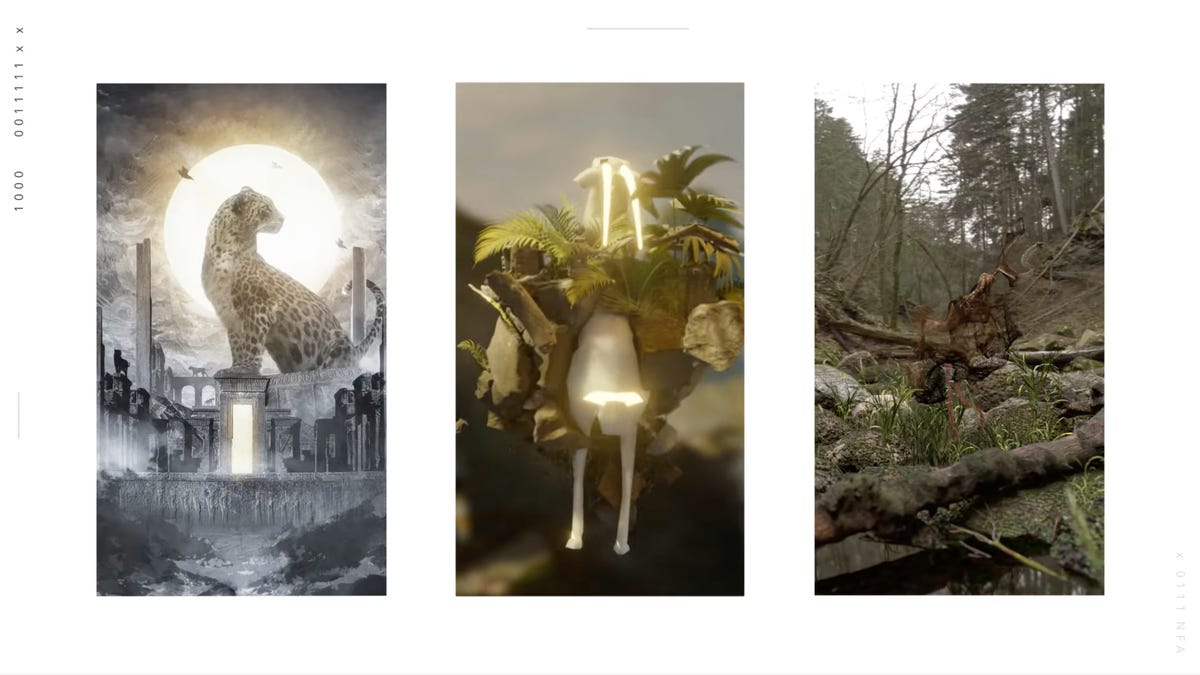Endangered animals are the latest things to become NFTs
The World Wildlife Fund is now selling NFTs to raise money in an effort to help protect 13 endangered species around the world.

Three of the non-fungible animals available for purchase from the World Wildlife Fund Germany.
The World Wildlife Fund UK launched a line of NFTs called "nonfungible animals," or NFAs, this week.
The digital art centers on 13 endangered animals, and each NFA is limited to that species' population. That means there are two Northern white rhino and about 1,800 giant panda NFAs available. Other animals include the Amur leopard, the vaquita and the African wild dog.
The WWF said proceeds from each NFA go toward conservation work across the globe: "We're helping to safeguard our most cherished wildlife – including magnificent rhinos, leopards and gorillas -- from threats such as poaching and habitat loss."
The WWF Germany previously released NFAs and raised about 244,899 euros ($280,000) through its sales.
NFTs, or nonfungible tokens, are units of data stored on a blockchain and tied to digital assets such as a video highlight, a meme or a tweet. They've have come under fire for their environmental impact, given the amount of computing energy used to create and maintain them.
The WWF said its NFAs are on the environmentally friendly Polygon blockchain, which is a side-chain of ethereum. But Catherine Flick, senior researcher in computing and social responsibility at De Montfort University, tweeted, "Polygon is not an eco-friendly blockchain."
omg @wwf_uk what are you doing? Polygon is not an eco-friendly blockchain. Anything that relies on Ethereum perpetuates Ethereum. You've been duped. https://t.co/r2qwaQG3PP
— Dr Catherine Flick (@CatherineFlick) February 2, 2022

